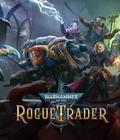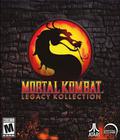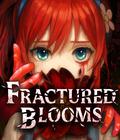Buy Deathloop
My biggest surprise when it comes to Deathloop is how friendly it is.
I wasn't as "read in" to Arkane's latest work as others were. I prefer to go into these things as cold as possible on forecasted impressions, so any feelings of shock, awe or disappointment can come from the rawest possible place. Based on trailers and a few snippets of interviews, I expected (and feared) a complicated, mind-bending roguelike that would not only repeatedly pound players into submission but also add a time-crunching element layered on top of a cake of stress, innovative and stylish concepts be damned.
Thankfully, that's not what happened. Instead, I got a groovy sci-fi murder/assassination puzzle that made exploration and storytelling the pillars of its fun instead of attrition. This game wants you to complete it and have fun while doing it. It wants you to look around and find as much as possible because in hindsight, that's truly the only way to finish the game. It's a marathon of fact-finding and action built around a very cool interpretation of how one can play with the concept of time, and I was here for all of it. As I write this, I'm a little sad it's over.
I enjoyed the straightforward setting in the early going: You're a guy named Colt who keeps dying and waking up on a mysterious island populated by a variety of gun-toting weirdos. It's a loop. At first, Colt has no idea why this is happening, only that he wants to break free of this loop. He figures out that the only way to do that is to take out eight "visionaries" on the island in a single day. It certainly sounds simple enough … except one of those visionaries, Julianna, is a supreme assassin who hunts down Colt every chance she gets.
This is where things get complicated in the best possible way: Time progresses in phases: morning, noon, afternoon and evening. As each phase begins, you are offered up to four choices of which section of the island you'd like Colt to check out, whether it's to explore and find clues or try to take out one or several of the visionaries who'll be at certain spots during that part of the day (or both). Here's one catch: You can only choose one place to go per phase of the day. Once you head there, do your thing, and head back to Colt's hideout, that part of the day is over. Once evening passes, the day starts over, and everyone who may have been killed will be walking around and carrying along with their repeated day. They're caught in the loop, too.
It takes an hour or so of play to even get to this point, to give Colt (and you, the player) some narrative breathing room to get a sense of what and who you're dealing with. I considered this a sort of "home" menu once the game truly opened up, complete with any information and lore I picked up along the way. The game does a great job of organizing and arranging information you find. At the top of this home menu are categories for documents, discoveries and "leads" on both weapons, and most importantly, the visionaries. The screen with visionary leads was my friend because it visualized everything Colt found out about the visionaries into a branching tree of information. Each growing branch, so to speak, can be tracked like an individual mission. It's one of the many subtle and smart ways the game helps you navigate through what could easily be pretty confusing stuff.
I also really loved how time was handled in Deathloop. Coming into the game, I imagined I'd face some kind of overarching clock counting down the simulated hours, which would've been a mental grenade of obsession and pressure that would have taken away some of the joy of playing and info-gathering that ends up being the key to finishing the whole experience. This system allowed me to inhale everything the game had to offer in any setting without fear of running out of time. If you want to spend hours in the "afternoon" phase, go right ahead. It's not only very enjoyable but necessary. The more you play, the more you realize that exploring every lead to its conclusion gives you the pieces you need to assemble the final leg of this epic, narrative puzzle. Once you do, the game maps out that final mission for you and leaves you to execute it.
Here lies the brilliance: The arcs of each lead span many repeated days, with key points tied to particular times of the day. Let's say a building where I need to go burns down in the afternoon, so the clue I need is gone. I can stop the fire from happening the next morning and get what I need later in the day. That's just a small example, and even though the game has been out for quite some time, I don't want to delve too much into the world of spoilers. However, this kind of thinking in regard to time is the glue for Colt's storytelling journey. Once he realizes what's going on, he starts to form a plan about to how to get as many of these visionaries into one place at the same time or how to set early traps for their demise. I even managed to kill one off-screen after sabotaging his fireworks earlier in the day, and it took Colt several days to find out how to do that. I had to go to the guy's club earlier to find a clue and ended up killing him anyway — but since it was the wrong time of the day, it didn't even matter. He was collateral damage on my quest for knowledge … on … how to kill him later. This kind of structure achieves something very hard to do: It eliminates a lot of the feelings of repetition even as you are most certainly repeating things. Even as you are restarting your day, you'll have a different goal in mind, have a different conversation, or explore a new part of a place you've already been to. It's captivating.
Many of the fact-finding missions in the early going put me directly in the line of fire of a visionary, but the timing was off, so it felt like these early encounters served as elaborate introductions to the personalities of these people. I also used them as scouting missions on how to take them out in other ways. It was all about the intel, and diving into the world and meeting this group of characters was worth it.
Going back to Dishonored, Arkane has established a certain kind of edgy, tongue-in-cheek vibe with its characters with the knowledge that your mission would be to eliminate them in some way. The visionaries are a gloriously strange bunch. Other than the aforementioned Julianna, there's Wenjie, a scientist who has found ways to make about a dozen copies of herself to divvy up her workload (I met and killed them all); Egor, another scientist who is laser-focused on studying the loop; Frank, who's almost like the island's radio personality; Aleksis, the epitome of the douchebag rich party boy; Charlie, super-nerd gamer tech genius who gave part of his brain to a computer to run his live-action RPG; Fia, the starving artist wacko who might be inspired by pure destruction; and Harriet, who is basically a cult leader.
Then there's Colt, the chatty and humorous protagonist and one of the few Black lead characters in video games, with Julianna being another. The love-hate conversations between the two drive the story forward and illuminate some of the darker corners of Colt's past — who he is, what he means to the island, who were the people he cared about. I won't say much more, but it's quickly evident how important Julianna's role is in all this.
Another wrinkle with Colt deals with gameplay and visualization. As he explores the islands, he sees floating words splashed all over the place, many of them warnings or hints like "maybe another way" or "best not to go in loud." It's revealed pretty that this is not Colt's first rodeo on the island, and that the floating messages could be from past versions of himself. What's a story about time without the discussion regarding someone's past selves, after all? This is yet another helpful tool for players, and it can indicate where you're going, give you new ideas about routes to take or warn you about the occasional ambush. It also allows for small peeks into Colt's psyche, especially when he pursues and kills a visionary.
As intricate as the plot sounds, the gameplay and combat systems are equally as deep. For starters, I appreciate how the game truly feels like you can play it any way you like, whether it's stealth or guns blazing. In the Dishonored games, you got the same choice, but I always felt like I broke something when I decided to go all-action. In Deathloop, it's almost encouraged, as Colt has a wide array of weapons to pick up and a lot of people on the island to use them on. These folks on the island are called "eternalists," poor saps also stuck in the loop who serve as the island's armed guards.
There's a bit of loot-shooter energy with the weapons, as there are tiers of color-coded quality assigned to whatever you pick up. Crappier guns jam frequently, while their more pristine counterparts don't jam at all. A lot of these guns have extra abilities, like a sniper rifle that has exploding bullets or a pistol that also releases clouds of toxic gas. Fans of first-person shooters will be familiar with the concepts of loadouts and tacking on perks you pick up (called trinkets) to add some extra oomph to firepower or cut down on weapon recoil. Trinkets can also be applied to Colt for things like extra health or more lethal melee attacks.
One of the stars of Deathloop's combat system are "slabs," which are magical tablets that bestow mystic abilities on whoever bears them. Most visionaries have them: One grants temporary invisibility, another allows for short-range teleportation, another is essentially a "rage" one, etc. Colt has one of his own, called Reprise, which allows him to be killed twice without resetting the entire day. When Colt loses one of his "lives," the screen visually "rewinds" him to an earlier spot. Colt can return to the spot where he "died," which is marked by a shimmering silhouette, and retrieve stuff he lost. I won't tell you when, but I once strategically "died" and used the rewind as an escape method instead of platform-jumping my way out of some trouble. It saved me some frustration.
If Colt dies and/or the day resets, he loses everything he was carrying on his previous run. It's a classic rogue device, but Deathloop circumvents it with an acquirable substance called residuum, which can be used to "infuse" things that Colt picks up during the day, whether it's weapons, slabs or trinkets. Infusing things allows Colt to carry over those items to the next day, regardless of whether the day resets or Colt fully dies. You like that rifle you picked up? Infuse it, and it's yours. Want to add that slab to your arsenal after killing the visionary who held it? Infuse. All of this feeds into the concept of building Cole into a true badass who's ready for any challenge in the play style you want him to occupy. It also takes away the stress of dying and losing everything each time, and then having to rebuild from scratch. That slows down the experience and leads to frustration, no matter what level of player you are. Again, Deathloop would rather you win.
The lengths Colt goes to in order to gain intel or encounter a visionary are some of the more entertaining scenarios I've played. A mission to seek out Charlie, the tech genius, required me to play through his live-action RPG, complete with decorated set pieces and narration over the PA system in the building. I ended up infiltrating Aleksis' masquerade party and messed with the supply of chocolate beer to draw him out and find out who he was. There's other stuff you'll do, but it's best to see for yourself.
I eventually ended up victorious, but one gripe is that I wasn't really satisfied with any of the three endings I got. Perhaps I didn't want the experience to end, but they all felt abrupt. They weren't bad, just … short. I also wasn't too happy with one of the game's major features, which is the ability to play as Julianna and "invade" the timelines of other people. What's cool in concept is that you can essentially do what you want when you're hunting Colt. You can even help him out and clear a path to a visionary if you want, and in some ways, I enjoyed that a little more than the hunt. Otherwise, I'm yet another online jackass trying to shoot a stranger who might be trying to get away from all that COD energy. The maps are quite large, so finding Colt during a hunt can be a massive chore unto itself, especially if you're dealing with someone who has nothing else to do and is content to sit there and kill time. Julianna can level up and boost her arsenal, but I wasn't compelled enough to get too deep into hunting others. Thankfully, the game allows you to switch on single-player or friends-only mode so that no stranger danger can spoil your time.
As much of an odyssey as it was, I thoroughly enjoyed my time with Deathloop. It's one of the more thoughtful and well-crafted games out there and one of the best things you can play on the PS5. In addition to everything else, I liked the game's sexy, graphic-novelish cartoon vibe in its visuals that made every area burst to life and fun to explore. It's a true piece of art and is definitely worth your time … over and over.
Score: 8.8/10
More articles about Deathloop











 Deathloop is a first-person action that transports you to the lawless island of Blackreef in an eternal struggle between two extraordinary assassins.
Deathloop is a first-person action that transports you to the lawless island of Blackreef in an eternal struggle between two extraordinary assassins.











































